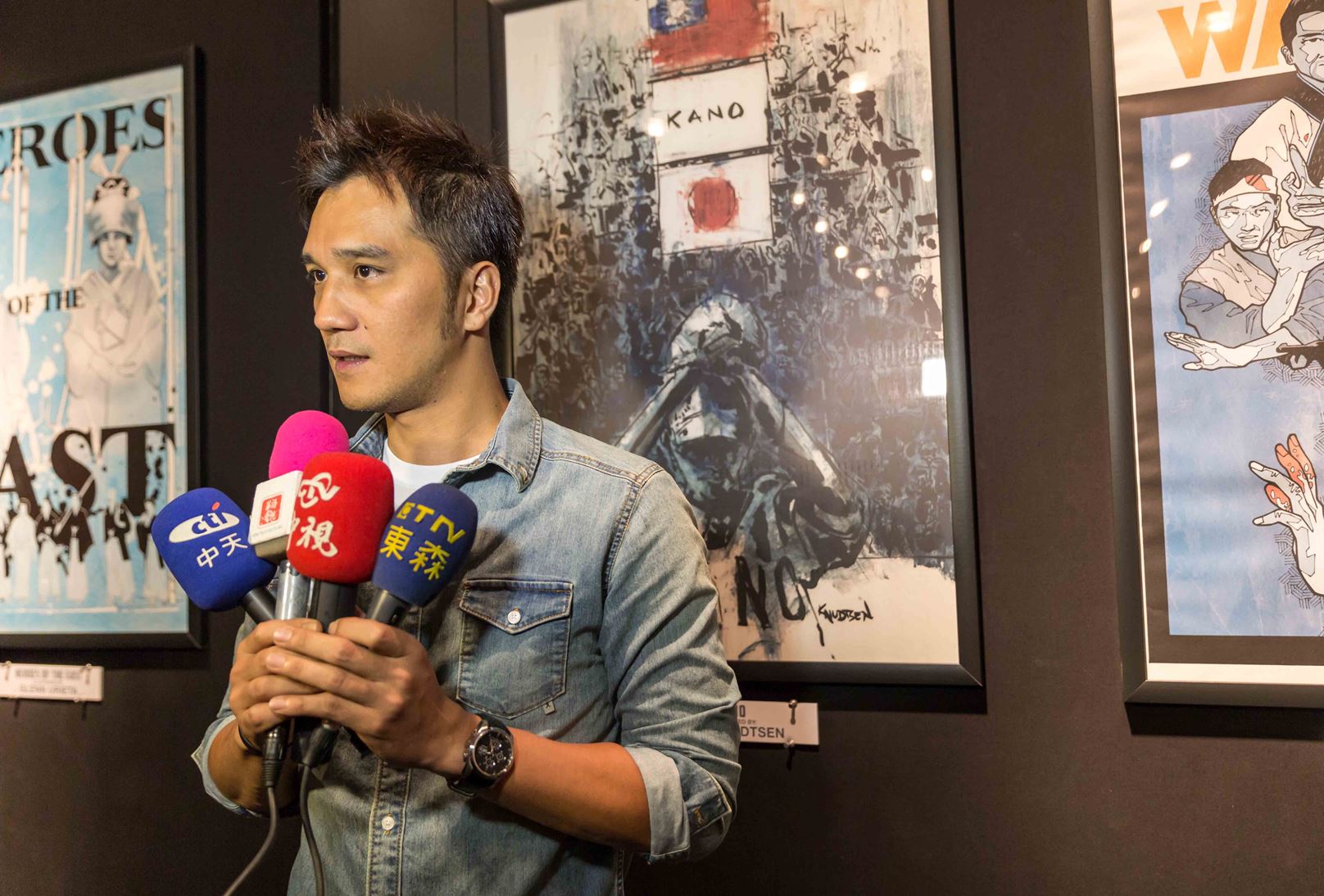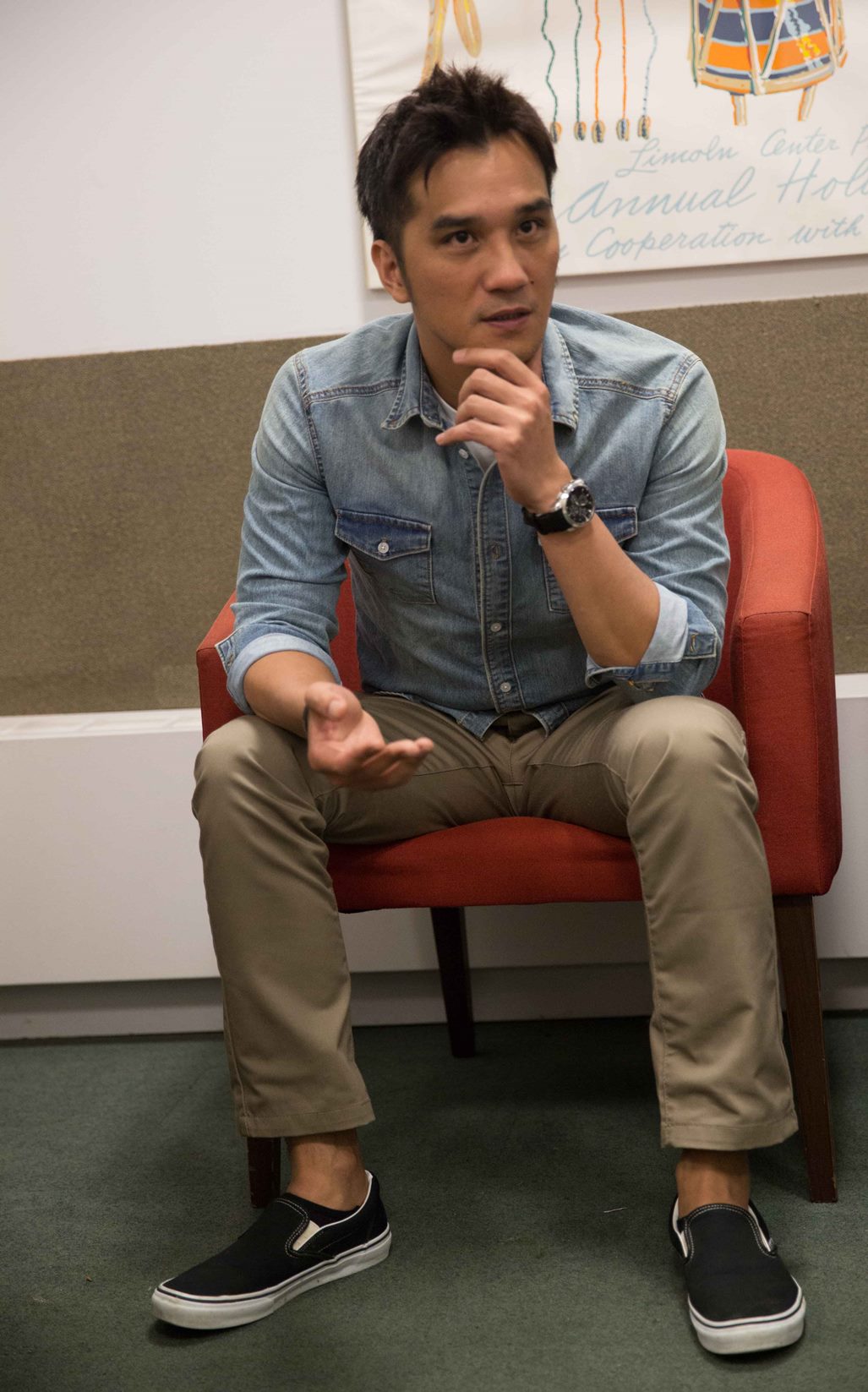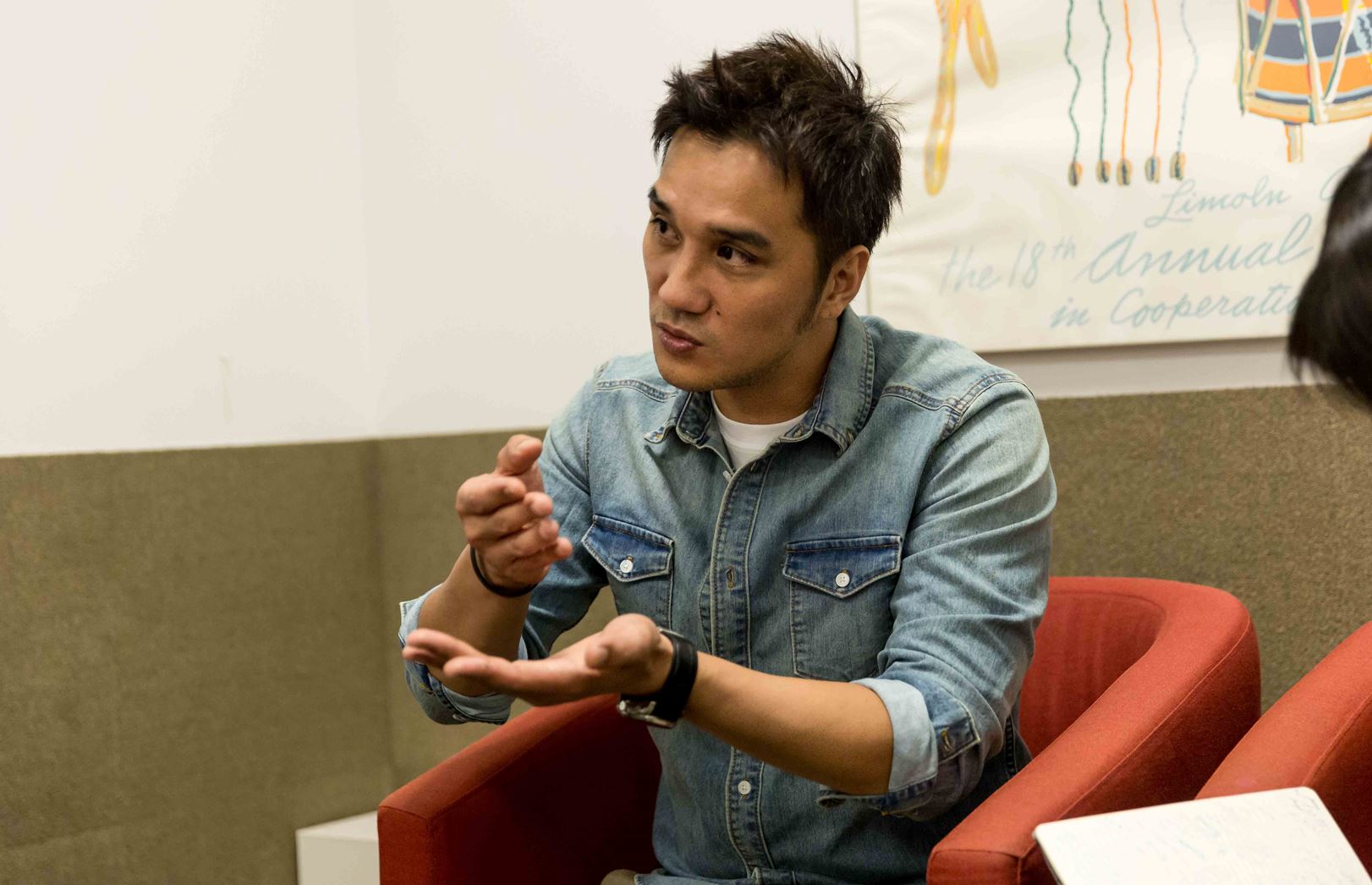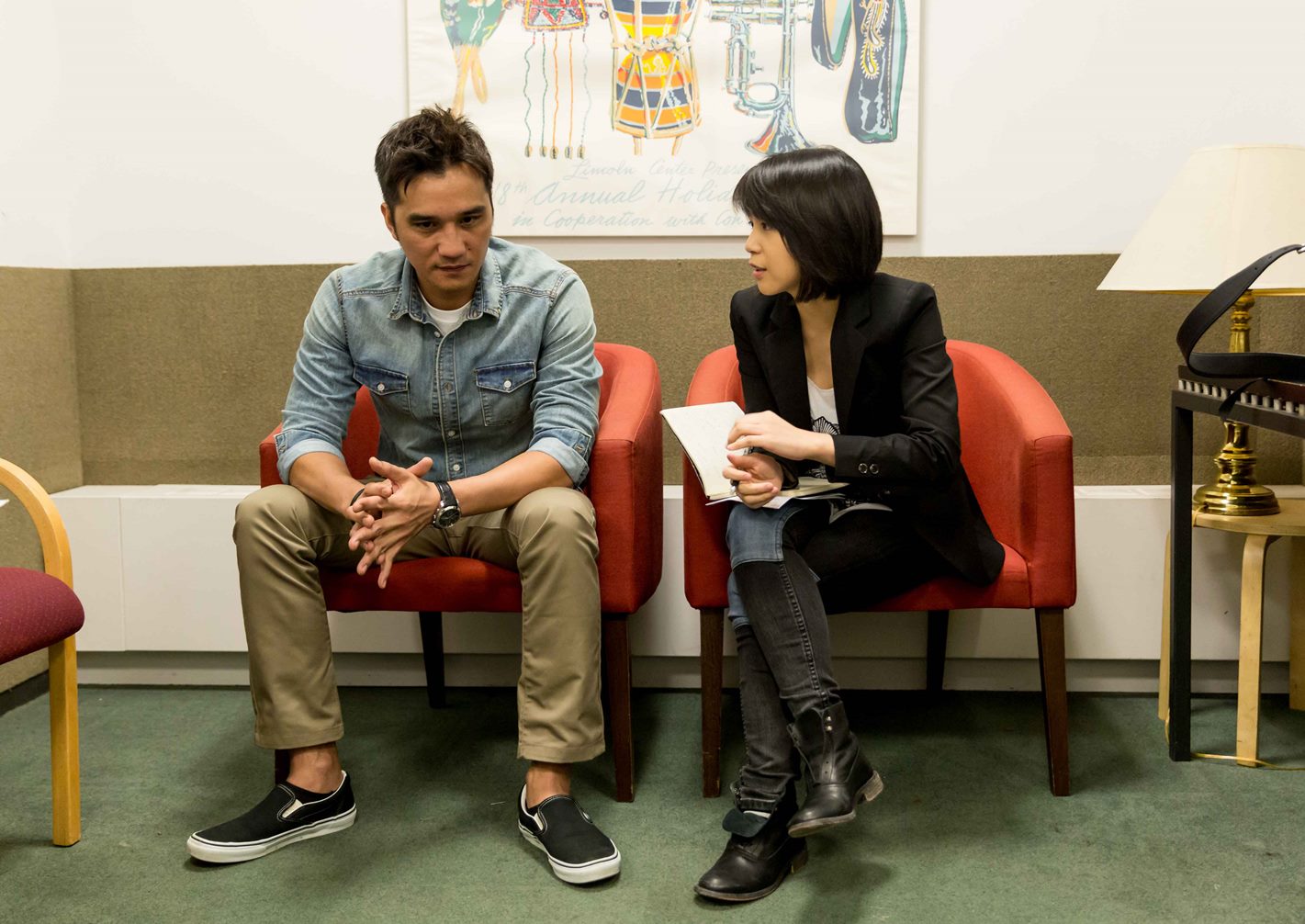Article by Kevin Young
Photo credit Xue Liang
Taiwanese actor turned director, Umin Boya graced the 2014 NYAFF with his presence, for the North American premiere of his director debut film, Kano. Boya spent over three years working on this film from going through over 30,000 applicants to casts as baseball players in the film to conducting extensive research in both Japan and Taiwan. Kano is based off of the true story of different ethnic groups coming together fighting for a shared desire to win an elite Japanese high school baseball competition in 1931 during Japan’s colonial rule of Taiwan. Boya wants this film to be well received by audiences here in North America just like it was in Taiwan. He secretly watched the screening of Kano posing as an ordinary citizen sitting among movie goers to watch their expressions as they viewed as Boya says his “perfect” movie. He sat down with us for a pleasant interview regarding his experience working on this film.
Is there anyone in the United States you would like to collaborate with?
I have admired director Ang Lee for his works. I grew up watching his films and actually the film crew that worked on Kano also worked on his film, Life of Pi. I really feel like I would learn a lot from Ang Lee. So as a director assistant or as an actor I really want to have the chance to work with him. I also like Brad Pitt.
How did you end up working with Wei Te-sheng?
So the story of how we came together for this project started at a photo shoot with me and director Wei Te-sheng. We were both asked to lay on a bed and chat freely before the shoot. So I asked the director what’s your next project. He said I’m going to make a small movie about baseball.
When I heard what he said I immediately recommended myself because I know the sport. I played on my high school baseball team. I asked if I could play a role in the movie but I didn’t know what he was actually thinking was that I could be the director of the movie. He thought he really liked baseball but he wasn’t passionate enough about the sport. And I was an athlete since junior high school thorough college so I was familiar with the type of passion athletes have. After I took this job I realized it is even a bigger story. The story of people from different ethnic groups coming together fighting for a common goal.
You said it was difficult conducting research for the film to portray the era in 1931. How did you do it?
Kano was a significant moment for Taiwanese people. But it was never written in our textbooks so when I was a kid there was no way for me to know about this event because it occurred at a very awkward moment in Taiwan’s history. There were many scholars and athletes at that time that collaborated and published a book on Kano in 1931.
Besides that the Japanese Koshien and the Asahi newspaper in Japan provided us with lots of historical documents. When we were making the film in order to restore the look of 1931 we spent lots of energy on doing research and we tried to bring back the architectural designs and costumes at that time. While directing the film I needed to make millions of decisions every day related to that. I feel that we have the responsibility to be authentic and true to the time period.
How did you transition from acting to directing?
There is a big difference between being an actor and being a director. As an actor you’re in the spotlight. As a director you’re behind the scenes and you get to tell the story. And because I have a story to tell I’m happy to be the director of Kano. It was a very stressful as a first time director. My experience as an actor definitely helped in understanding about performance but they are very different professions. I had to actually teach myself a lot of things and it was very difficult.
There’s a typhoon scene in the movie where the Kano team gets into a fight at theater. Can you talk about how you filmed that scene?
When I was asked similar questions about what was the most difficult scene to shoot back in Taiwan I never really wanted to remember anything because all of the scenes are too hard to recall. But I can talk about it now. So the typhoon scene was really difficult to shoot because whenever we were shooting the raining scenes it was extremely cold at. And every time we were shooting the scenes with difficult weather it involved the Japanese stars so we had to be very careful. I really want to thank my film crew. They were very hardworking and profession from shooting those scenes. As a director I have ideas and pictures to film but it all relies on the technicians to make it real.
The main character, coach Kano rarely smiles throughout the whole film even when he’s with his family. Why is he such a stoic character?
It was because men were like that during that era. I personally talked with the actor, Masatoshi Nagase and he agreed that that’s the way this character should be portrayed. This character had to be strict in order to turn his team into elite baseball players.
Looking over the movie if you could change anything what would it be?
The movie is perfect the way it is. Of course every time I make a film there is something I regret or want to improve on. But I thought it was actually nice to have everything the way it is because Kano is its own form of art that can be appreciated. There’s a saying that imperfection is part of the perfection and like the baseball team Kano, the fact that they were in finals but didn’t win the championship is a sort of perfection.
What was the most rewarding part about directing Kano?
I got lots of experiences. I know that in my process of learning this is a huge step. I jumped from being a director of t.v. movies to becoming a director of a large feature film. So I think this is very helpful for me to grow as a director.
What’s the main message you want viewers to take away after watching the movie?
I just want the audience to enjoy the film without too much pressure. But aside from enjoying the film I hope that they are touched. I hope if they do carry something that it’s to help lead them to their next challenge in life. Kano is about a group of kids that although they lost a game they challenged themselves. So as the film says don’t think about winning think about not losing.





Leave a Reply